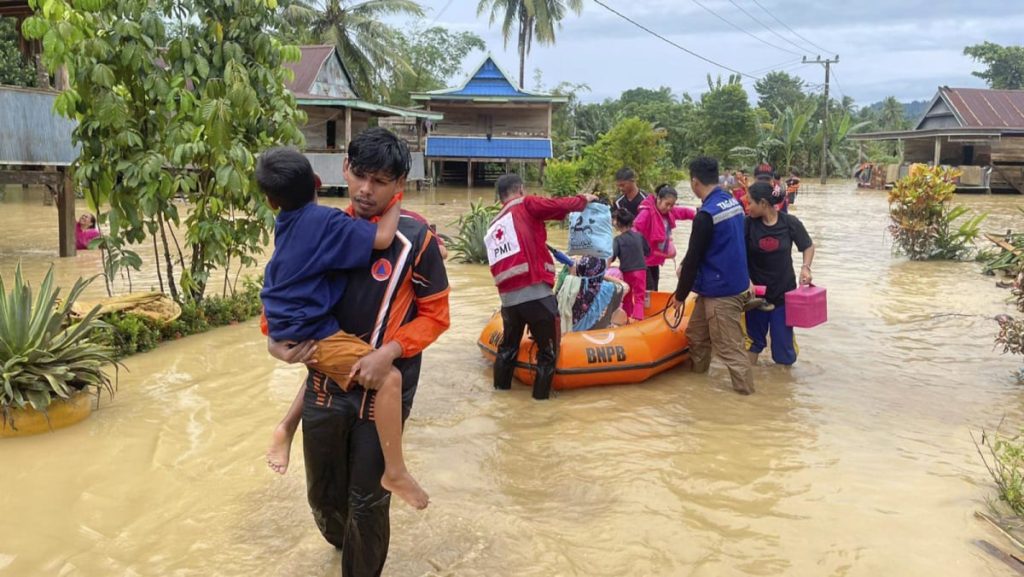on and poor infrastructure. The landslides and flooding in central Indonesia have caused significant destruction, with houses swept away and roads damaged. The disaster agency in Indonesia has reported that at least 15 people have lost their lives as a result of these natural disasters.
The rainy season in Indonesia is known for causing landslides and flooding, with the country’s geographical location making it particularly prone to these events. The problem is further exacerbated by deforestation and poor infrastructure in certain areas. These challenges make it difficult for residents in central Indonesia to protect themselves and their homes from the devastating effects of the rainy season.
The impact of the landslides and flooding in central Indonesia has been severe, with many families losing their homes and belongings. The destruction of roads has also hindered rescue and relief efforts, making it challenging for authorities to reach affected areas and provide assistance to those in need. The disaster agency in Indonesia is working to address the situation and support affected communities during this difficult time.
Natural disasters such as landslides and flooding are not uncommon in Indonesia, with the country experiencing a high frequency of such events due to its geographic location and climate. The government has been working to improve disaster preparedness and response measures to better protect communities from the impacts of these disasters. This includes initiatives to address deforestation and improve infrastructure in vulnerable areas.
Efforts to mitigate the impact of landslides and flooding in Indonesia are crucial in order to protect lives and property. The government’s disaster agency plays a key role in coordinating response efforts and providing support to affected communities. By investing in disaster preparedness and resilience initiatives, Indonesia can better respond to natural disasters and reduce the risk of future damage and loss of life.
In the wake of the landslides and flooding in central Indonesia, it is important for the government and relevant authorities to continue to provide support to affected communities. This includes ensuring access to emergency supplies, medical care, and temporary shelter for those who have been displaced by the disasters. By working together and prioritizing the safety and well-being of all citizens, Indonesia can recover from this tragedy and rebuild stronger and more resilient communities.


